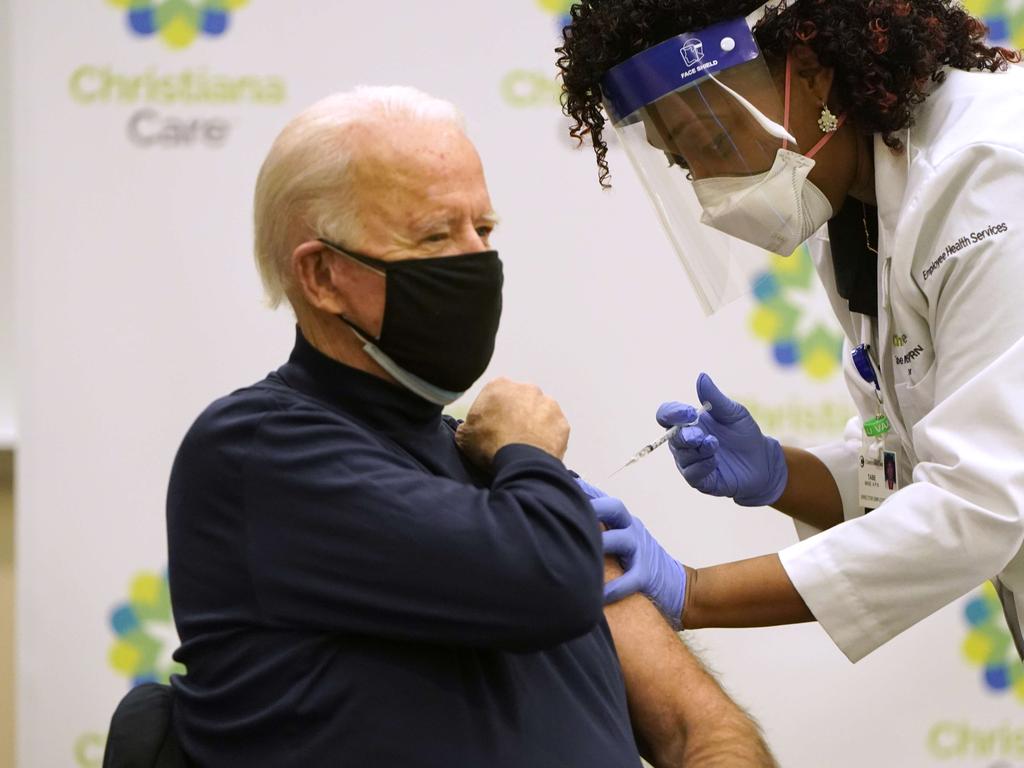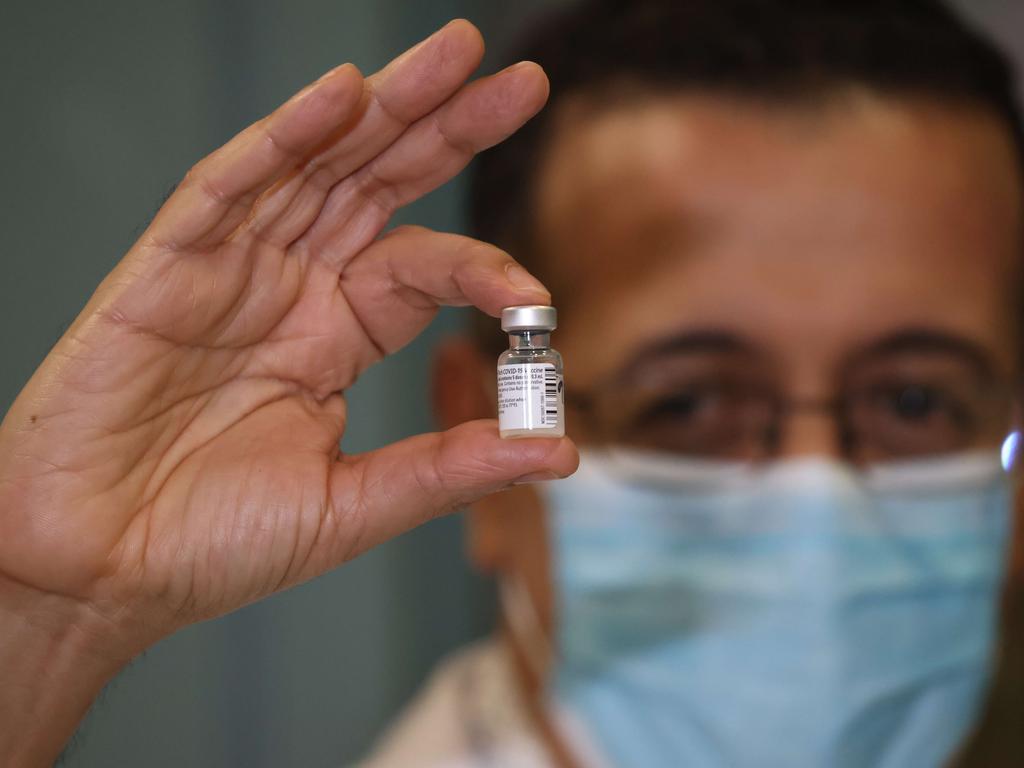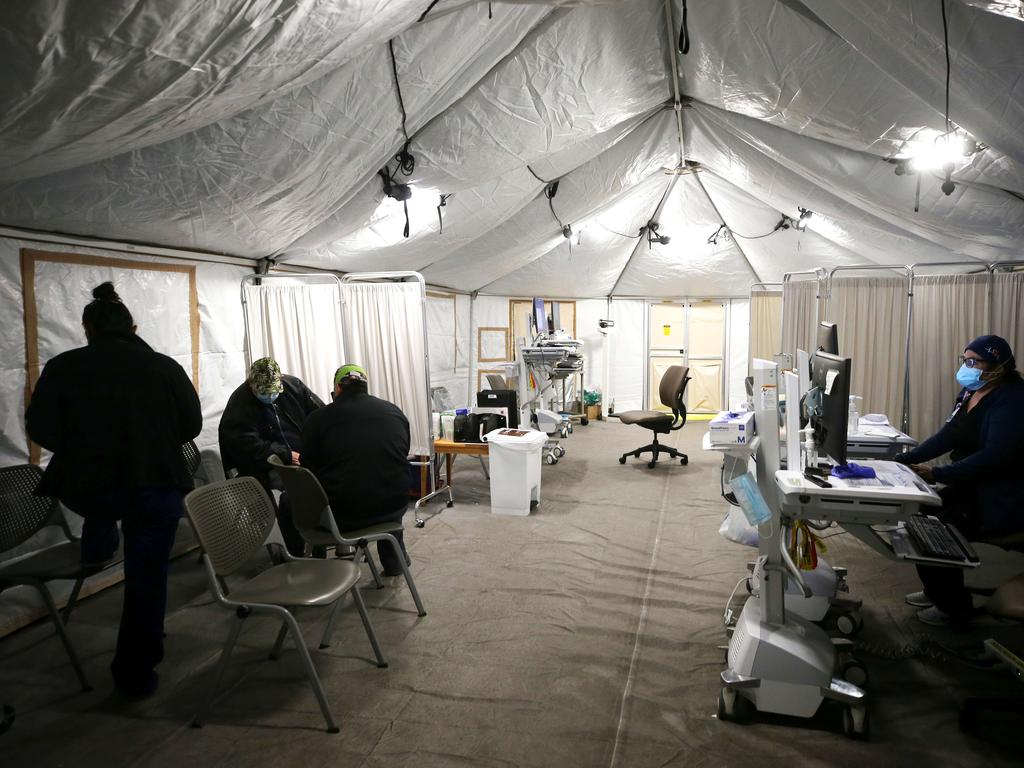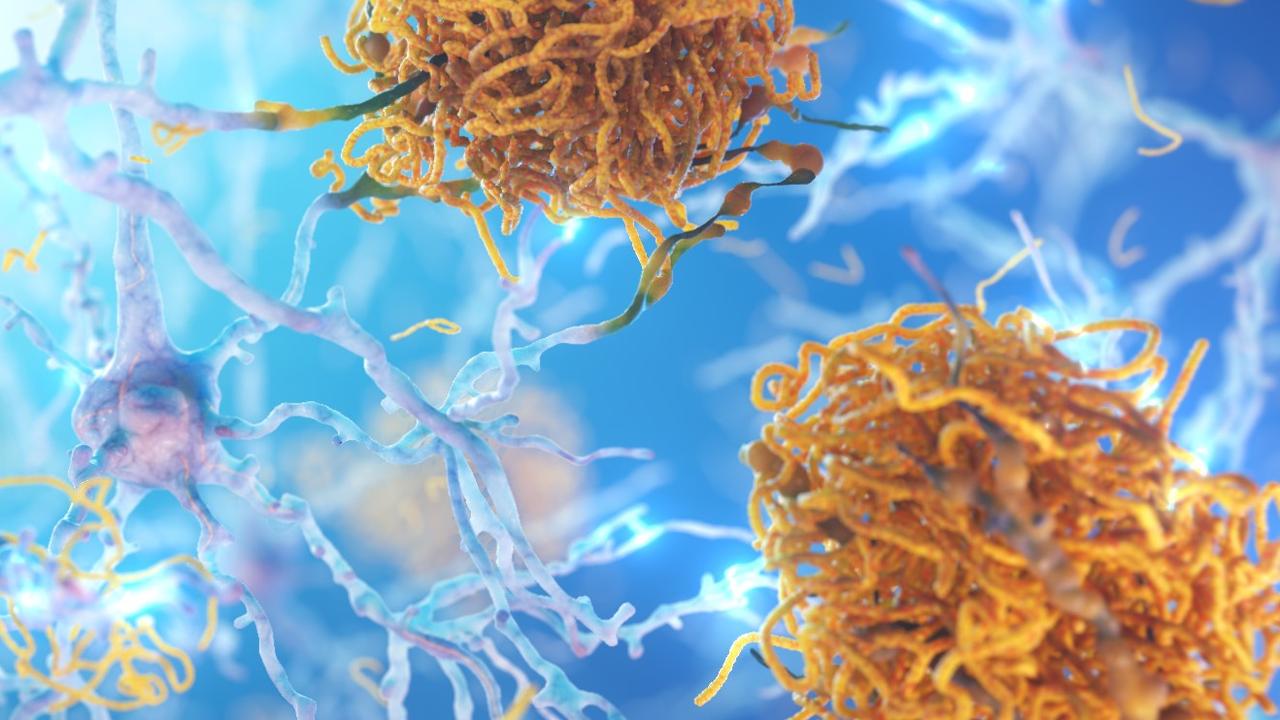Pfizer BioNTech, Moderna vaccines begin in the US, UK, but Australia faces a ‘huge challenge’
Our vaccines won’t arrive for three months, but there’s another problem with our ticket out of lockdown that two out of three people will need to overcome.
Vaccines to guard against the deadly COVID-19 disease are being rolled out, but despite being touted as the key to overcoming the global pandemic, it could be some time before we see any benefit.
Vaccination shots are already being given in the UK and the US after Pfizer/BioNTech and Moderna were granted emergency approvals and Australia is expected to be administering shots by March
RELATED: Follow our live coronavirus coverage

RELATED: Contagious strain puts UK flights in doubt
While the beginning of vaccinations is good news it doesn’t mean we’re out of the woods yet.
“Something like two-thirds of the population will have to be immunised before we see herd immunity. Those are only estimates, we won’t know for sure until it actually happens,” University of Melbourne Professor and head of the Vaccine and Immunisation Research Group at the Doherty Institute Terry Nolan told news.com.au.
And those goalposts could shift.
Mutations in the virus could increase its virility, as has recently been suggested is happening in the UK, although Prof Nolan said the mutant strain of the virus was “alleged to be more transmissive” but he’s “not utterly convinced” at this stage.
“There are lots and lots of mutations we already know about in the corona, and none of them have made much difference, if any, to its characteristics,” he said.
If it does happen though “it might mean we need higher than two-thirds, maybe 70 or 75 per cent. They’re big numbers,” Prof Nolan said.
“In any population to get that level of protection through vaccination is a very big effort, especially to do that very quickly, that’s a huge challenge actually. It doesn’t mean it can’t be done but no one should underestimate the size of that challenge.”
It’s even bigger when you bring children into the mix.
Tests still need to be done on whether the vaccines are safe for children and pregnant women, or need to be adjusted.
“I think everyone’s probably regretting a bit that they didn’t start to study children’s vaccine responses a bit earlier,” Prof Nolan said.
There’s also a chance the required proportion of the population might not be as high as the models suggest due to a possibility the vaccine is better at preventing transmission than preclinical studies suggested.
TICKET BACK TO NORMAL LIFE
For many, the vaccine is seen as the ticket out of the pandemic, and certainly for resumption of once normal activities like international travel.
Qantas CEO Alan Joyce has said a vaccine needs to come and passengers will have to get it before international travellers are allowed back on board.
Flight Centre CEO Graham Turner has taken a different view, calling for travel to resume without a vaccine and saying there should be very little risk with “the right protocols”.
RELATED: Cops backflip on ‘cruel’ virus fines

AUSTRALIA’S VACCINES WAITING FOR APPROVAL
Australia had four vaccines in the pipeline until the UQ/CSL vaccine was abandoned earlier this month after it made people test positive for HIV when they didn’t have it.
After that revelation the government upped its options for vaccines from AstraZeneca and Novavax to cover.
Our vaccine options are now for:
• 53.8 million doses of the Oxford University/AstraZeneca vaccine. The vaccine requires two doses, with 3.8 million to arrive from overseas in early 2021 and a further 50 million to be manufactured in Australia by CSL.
• 51 million doses of the two-dose Novavax vaccine throughout 2021.
• 10 million of the two-dose Pfizer-BioNTech vaccine currently being administered in the US and the UK.
RELATED: Wedding spreads mutant COVID strain
While those doses are enough to vaccinate Australia’s entire population, they’re not the only ones we’re betting on.
Australia is also a member of the COVAX Facility, a global effort to “support rapid, fair and equitable access” to COVID-19 vaccines, that will allow us to buy more doses of vaccines as they become available.
That facility includes the AstraZeneca and Novavax vaccines we’ve already secured and seven others from Moderna, CureVac, Sanofi/GlaxoSmithKline, Inovio, Clover Biopharmaceuticals/GlaxoSmithKline/Dynavax, Institut Pasteur/Merck/Themis, and the University of Hong Kong.
Many of those vaccines are a long way from finishing their trial stages.
The Therapeutic Goods Administration (TGA) is yet to approve any vaccines and will make a decision at the end of February.
WHY WE’RE NOT IN A RUSH TO START VACCINATING
While other countries have granted emergency approvals, the TGA said “exercising these provisions is a matter for those countries, taking into account the risks versus benefits in the context of the prevailing domestic pandemic situation”.
Prof Nolan said we might have used emergency approvals here “if we were absolutely out of control like the UK, the US and a lot of European countries”.
“They’re in a very, very different situation to what we are. Of course, our situation is fragile and no one should underestimate the risk that the virus could escape containment and if it were to, we could very quickly be in serious trouble again.
“The whole population virtually is still at risk, the number of Australians who have been infected and therefore are immune is tiny, so the whole population effectively is still vulnerable.”
The TGA is adjusting its usual approval processes to accept rolling data to enable early evaluation as it comes to hand.

It’s currently evaluating the AstraZeneca and Pfizer vaccines, as well as a one-dose vaccine from Johnson & Johnson’s Janssen.
Earlier this month, The Australian reported Janssen was in talks with the government for an agreement on that vaccine.
The Janssen vaccine is attractive because, like Moderna’s vaccine, it only requires one dose.
Prof Nolan said there will be a “small proportion” of people “who maybe don’t like it or have some sort of minor reaction” and won’t go back for a second dose, and therefore wouldn’t be fully immunised.
“I’m hoping the government is also scouring other major manufacturers (for single dose vaccines), especially Moderna, and I’m hoping they’re attempting to secure some additional mRNA vaccines.”
When the viruses are available it will also be a while before your average Australian can get one.
Around the world, the vaccines are being prioritised for people most vulnerable to the virus (such as the elderly or immunocompromised) and for people in high-risk jobs on the frontline of the pandemic fight (such as health care workers).
Prof Nolan said that approach makes perfect sense.
“The immediate goal is to save lives … Every single country where they’ve gone through this process already have decided what the rollout is going to be and have adopted the same strategy.”
Prof Nolan suggested the focus on saving lives was better than focusing on “herd immunity”, and it would be a “folly to think” that immunity should be the principal target.

That focus on herd immunity had some in Australia (and others around the world) throwing their support behind a “let it rip” style approach embraced by Sweden, but Prof Nolan said that country is now reaping what it earlier sowed.
“The Swedes decided on herd immunity through natural infection – that they were going to let it rip – and thought stupidly herd immunity was going to happen. It was never going to happen.”
The “absolutely out of control” United States is now “about to see what happens when you let it rip”.
“The health system eventually can’t cope, and what happened in Italy during the first wave starts to happen,” Prof Nolan said.
“The whole system falls apart and you start having to make decisions about not treating people because there aren’t enough staff, or aren’t enough ventilators.
“Then your staff start getting sick, and the system sort of just falls over.
“It’s just pure maths: If you let it get out of control it becomes unmanageable, you’ve got to get it very early, otherwise all the systems – whether they’re track and trace prevention systems or treatment – can’t cope with the numbers because they exponentiate.
“You don’t have enough resources and you just can’t contain it.”
He said Australia can be “justifiably proud” for our tough and early response to the virus.



